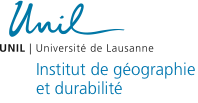Institute of Geography and Sustainability of the University of Lausanne
Research projects
Hazardous planning: improvising the Olympics
| Research fields |
Urban matters Sustainable urban development Cities, policies and environment |
| Keywords |
Uncertainty Sustainable urbanism Project management |
| Funding | |
| Duration | April 2016 - January 2019 |
| Website | |
| Researchers |
Müller Martin (---) [web] [email] |
This project is about planning the unplannable: mega-projects that stretch over several years, sometimes decades, and run to several billions of euros. Among those, it focuses on the largest events in the world – the Olympic Games and the Football World Cup. The project is situated between the disciplines of geography, sociology, organisation studies and sports and leisure studies, drawing on each to better understand how organisers try to rise to the challenge of preparing for mega-events with scrupulous advance planning. But the more people plan, the more effectively chance strikes: that is what I call the planning paradox. Staging a mega-event is thus much like what Alain Badiou, philosophically, describes as an event: 'the hazardous passage from one state of affairs to another' (Badiou 2009, 384). It is these hazardous passages, and the states of affairs they engender, that the book project traces – through interviews and documents – in the planning of the Olympic Games and the Football World Cup. Each hazardous passage means passing through murky waters and dealing with unforeseen challenges. These challenges require a departure from plans and bring forth improvisation. The project develops this notion of improvisation and argues that it is crucial to staging mega-events under even the most adverse circumstances.

